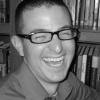human genome
See the following -
2019 Forecast: Amara's Law: Health Data, Gene Editing, and Artificial Intelligence
 I have two predictions for 2019. One is that at the end of 2019 our healthcare system will still look a lot like it looks now. Oh, sure, we'll see some cool new technologies, some innovative start-ups, some surprising corporate pairings, some moves by Big Tech, and some promising clinical findings. But our healthcare system moves slowly, and many in it have strongly vested interests in the status quo. The second prediction is that, more than ever, Amara's Law still prevails. In case you don't know this "law," it is attributed to Roy Amara, who was President of the Institute for the Future, among other things, and goes like this...
I have two predictions for 2019. One is that at the end of 2019 our healthcare system will still look a lot like it looks now. Oh, sure, we'll see some cool new technologies, some innovative start-ups, some surprising corporate pairings, some moves by Big Tech, and some promising clinical findings. But our healthcare system moves slowly, and many in it have strongly vested interests in the status quo. The second prediction is that, more than ever, Amara's Law still prevails. In case you don't know this "law," it is attributed to Roy Amara, who was President of the Institute for the Future, among other things, and goes like this...
- Login to post comments
Data Liquidity Tackles Cancer And Diabetes: An Epic Battle For Global Health
The Data Liquidity Coalition is a collaboration comprised of a wide spectrum of stakeholders in the biomedical community – including providers, payers, patients, researchers and others—who are deeply committed to actualizing a common vision of data liquidity to achieve personalized medicine and the rapid learning healthcare system. Read More »
- Login to post comments
For UNC Scientists, Open Source is the Way Forward

Fibrodysplasia ossificans progressiva—more commonly called stone man's syndrome—is the result of a rare mutation, an anomaly in the way certain enzymes called kinases spur protein synthesis. Someone with stone man's syndrome has hyperactive kinases that catalyze more bone production than they should. The body's natural repair mechanisms malfunction, and they replace soft tissue with deposits of solid bone. Joints freeze. The body becomes a prison. But scientists know they can manipulate those kinases to combat the disease. And chemical biologists at the University of North Carolina are leading an open source effort to unlock the secrets of kinase activity—secrets they say could pioneer a new generation of drug discovery...
- Login to post comments
Human DNA Should Be Open Source
No one should be able to own the naturally occurring sequence of molecules that make up DNA in the human genome. First of all these are naturally occurring sequences, not invented by anyone. It is akin to an old time explorer planting a flag in a new land and claiming it for his country. Territory is not patentable and neither should be genes... Read More »
- Login to post comments
New Software Traces Origins of Genetic Disorders 20 Times More Accurately
In a bioinformatics breakthrough, iMinds-STADIUS - KU Leuven researchers have successfully applied advanced artificial intelligence to enable the automated analysis of huge amounts of genetic data. Read More »
- Login to post comments
OHSU, Intel Partner On Genetics
Oregon Health & Science University and Intel Corp. are teaming up to develop next-generation computing technologies that advance the field of personalized medicine by dramatically increasing the speed, precision and cost-effectiveness of analyzing a patient's individual genetic profile. Read More »
- Login to post comments
Patients Matter Most, But Technology Matters A Lot
Computing practices that used to be religated to experimental outposts are now taking up residence at the center of the health care field. From natural language processing to machine learning to predictive modeling, you see people promising at the health data forum (Health Datapalooza IV) to do it in production environments. Read More »
- Login to post comments
Perspective: HIE, 'Omics' And Personalized Medicine
Oregon Health & Science University and Intel are partnering on a genomics computing project that’s very much following IBM's Watson in its processing largess and medical ambition — a sign of the evolving relationships between patients, doctors and computers, and also, pretty much, health information exchange applied scientifically. Read More »
- Login to post comments
The Doctor Is In
I’m a little underslept today,” Dr. Francis Collins laughs, sitting in his office in the historic Building 1 of the National Institutes of Health’s sprawling campus in Bethesda, Md., where he presides as the dean of the nation’s health. [...] Read More »
- Login to post comments
Why Getting To A Digital Health Care System Is Going to Be Harder Than We Thought Ten Years Ago
A leading scientist once claimed that, with the relevant data and a large enough computer, he could “compute the organism” – meaning completely describe its anatomy, physiology, and behavior. Another legendary researcher asserted that, following capture of the relevant data, “we will know what it is to be human.” Read More »
- Login to post comments